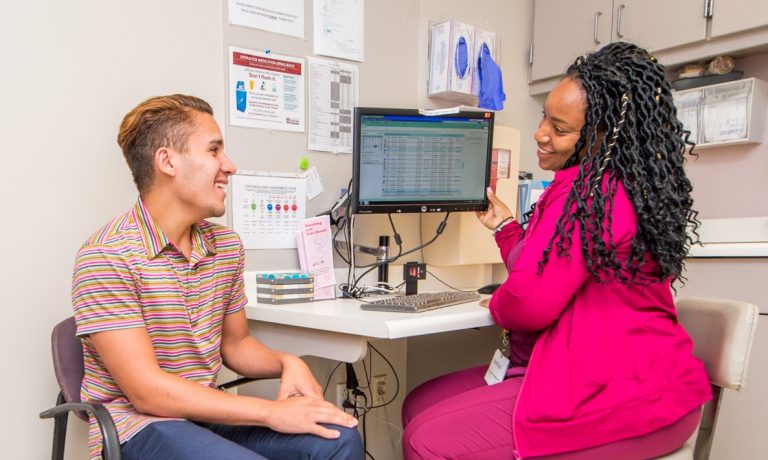In October 2019, UChicago Medicine’s Center for Healthcare Delivery Science and Innovation (HDSI) embarked on a two-year, multi-institutional project to move the conversation forward around managing chronic pain. Supported by a $4 million contract from the Agency for Healthcare Research and Quality (AHRQ), the team – UCM, RTI International, Vanderbilt University Medical Center, Alphora LLC (Database Consulting Group), a patient advocate, and expert informatics consultants – had high hopes of creating and implementing tools that could be publicly available and employed by different health systems with relative ease.
UCM piloted two tools to facilitate shared decision making between patients and providers:
- MyPAIN, a survey app sent to patients prior to their appointment, developed specifically for this project, and
- PainManager, a dashboard app accessed from within the electronic health record (EHR) that shows the results of the MyPAIN survey (along with other relevant patient information), adapted from an existing tool.
Along the way, the team faced several challenges; from solidifying the design to troubleshooting unknown errors, they spent hours on video calls with our institutional partners. The COVID-19 pandemic slowed down the project as well, as the health system focused on addressing the immediate crisis. Despite delaying the pilot in order to implement fixes to PainManager, the tool continued to experience operational issues (including long load times and crashes) that made it difficult to use in clinic settings. The team ultimately created an alternative report within the EHR, so that providers could view MyPAIN survey data in an easier way.
From a technology perspective, while UCM had prior experience in successfully deploying FHIR-based tools for clinical workflows, the particular back-end technology used to implement PainManager and MyPain was relatively new. (A FHIR façade allows for access to data from legacy systems via the FHIR standard.) Although this project’s pilot period did not demonstrate feasibility for sustaining PainManager, John Moses, IT Research Lead, noted, “I view this as a valuable learning experience on the best ways to design and implement portable technologies and repeatable processes within the health care space. The lessons learned will be applied to future initiatives both within and beyond UCM.” In addition, a forthcoming publication from RTI will provide more details on implementing these particular tools and add to the national conversation around the patient voice in chronic pain management.
Innovation naturally involves trying new ideas and practices, and some don’t work out exactly as planned. Cheng-Kai Kao, MD, Co-PI for the project at UCM: “The path has been proven to be difficult in the current environment, where interoperability and sustainability remain a challenge, but we had gained valuable insights from this project about the problems and opportunities in the space, which will inform our future strategy to design, develop and adopt similar technology.” The lessons from the past two years will have a lasting impact for UChicago Medicine and the national efforts in fostering both new technologies and bold ideas: to center the relationship between patients and their providers, and to empower them to make decisions together to serve the patient’s health and goals.
Author: Kimisha Cassidy, MS is the Project Manager for HDSI. Please reach out to her at kimisha.cassidy@uchicagomedicine.org with any questions.


Leave A Comment